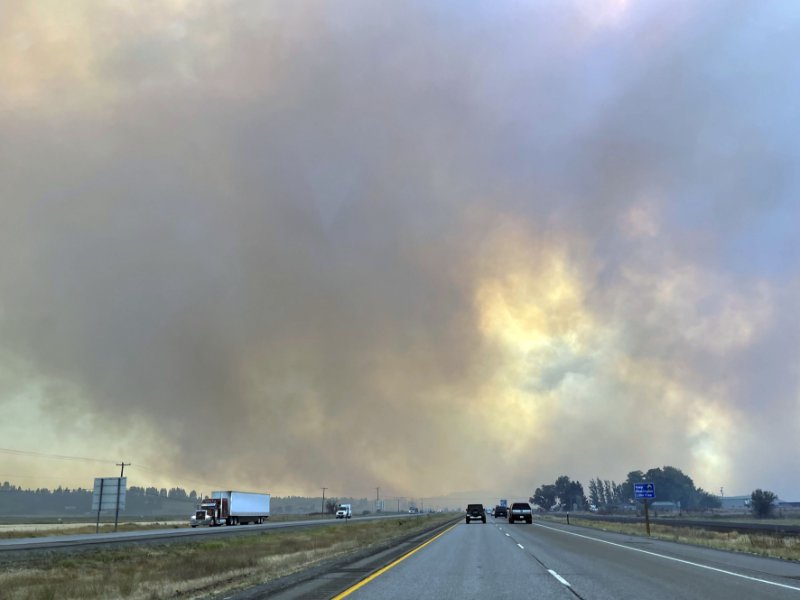Warmer temperatures and drier conditions

By the 2070s, Spokane is projected to experience significantly warmer temperatures, especially during the summer months. Drier conditions are expected to worsen the risk of wildfires in the region
SPOKANE
Spokane is facing the impacts of climate change, including rising temperatures, an increased risk of extreme weather events, and potential effects on water resources. The city is actively engaged in climate resilience planning to address these challenges. By the 2070s, Spokane is projected to experience significantly warmer temperatures, especially during the summer months.
The hottest summer days are expected to increase considerably. The number of days with heat index readings exceeding 90, 100, and 105 degrees Fahrenheit is anticipated to rise, posing risks to public health, particularly for vulnerable populations. Although overall precipitation may increase slightly, the likelihood of extreme rainfall or snowfall is also projected to grow, which could lead to flooding.
Warmer temperatures and drier conditions are expected to worsen the risk of wildfires in the region. While Spokane’s water supply is relatively secure due to the Spokane Valley-Rathdrum Prairie Aquifer, climate change could still affect the timing and availability of water resources. The city is updating its Comprehensive Plan to integrate climate considerations, aiming for a more resilient and sustainable future.
Spokane is also actively involved in climate planning efforts, which include gathering information, assessing risks, and developing new climate policies. Community workshops and events are scheduled throughout 2024 and 2025 to engage residents in the climate planning process. The city is prioritizing environmental justice, specifically addressing how climate change disproportionately impacts vulnerable communities. A recent study by USA Today Homefront ranked Spokane as one of the most climate-resilient cities in the United States. Under a lower emissions scenario (RCP 4.5), Spokane’s average temperature is expected to rise from its historical mean (1971–2000) of 25.9 degrees Fahrenheit to 30.6°F, or to 31.8°F under a high emissions scenario (RCP 8.5). This increase in average temperatures at Mt. Spokane is anticipated to correspond with a decline in snow at the ski park.
Ends












